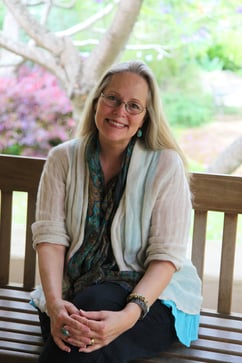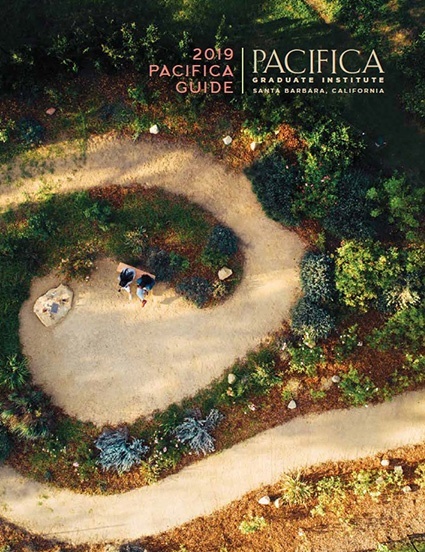An Interview of Juliet Rohde-Brown, Ph.D., by Angela Borda: Part II of III
 You are the chair of Pacifica’s Integrative Therapies and Healing Practices Specialization. For students coming to Pacifica, what kinds of interests or career goals would lead them to this specialization? What kind of courses do you teach?
You are the chair of Pacifica’s Integrative Therapies and Healing Practices Specialization. For students coming to Pacifica, what kinds of interests or career goals would lead them to this specialization? What kind of courses do you teach?
Juliet Rohde-Brown: Students need to have a Master’s degree and their own practice. Most are licensed psychotherapists at the Master’s level, but we also have psychiatric nurses, pastoral counselors, and those who work in spiritual/life coaching. The majority are licensed psychotherapists. The program is for people who are already working in the world with patients or have decided on that as a path. We mostly focus on therapy, we have an indigenous psychology class taught by two first-nations teachers, so we’re sensitive to avoiding appropriation while at the same time wanting to deepen into our questions about our own heritage and being sensitive and open and engaging with those from other traditions. We have an eco-spirituality course where the students go out into the wilderness on their last days. We have a nice diversity of people in our program with different cultural traditions. For instance, one of our Korean students created a grieving tree for us on campus, as so many people in the cohort have lost loved ones or are caring for loved ones. She brought this beautiful paper back from Korea, made strips, and people wrote their grieving on it. We had an opening and closing ceremony, and hung papers in tree. Afterward, she placed the papers in a singing bowl, covered the grieving papers with water, and will use that to make a sculpture. There is so much loss in our world, these are the kinds of people we attract, she’s a social worker in New York and did grieving trees on the streets of NYC. People like her are drawn to our program because they’re blending the arts and community-based ways of healing into purposeful work in the world. Frankly many are disillusioned with the mainstream world of psychology. They function in it, but they need something that is deeper than just diagnosing and writing reports quickly for insurance companies. They’re drawn to something that’s asking more questions, something that’s meeting people in a different way, letting them know they’re seen and heard and emphasizing the relational. We ask questions of consciousness. What is it? Is it confined to the human?
"People are drawn to our program because they’re blending the arts and community-based ways of healing into purposeful work in the world. Frankly many are disillusioned with the mainstream world of psychology. They function in it, but they need something that is deeper than just diagnosing and writing reports quickly for insurance companies." -Juliet Rohde-Brown, Ph.D.
What courses do you teach at Pacifica?Juliet Rohde-Brown: I usually co-teach imaginal and experiential dimension practice, but Professor Brewster is doing that this year, working with illness and death, indigenous perspectives on suffering. I do practice consultation every year, written comprehensive exams, and then the oral exams. We don’t have advisers per say because we’re a small program, but all the core faculty are very approachable and guide the students through the process. Right now we have someone who is looking at nonverbal aspects and subtle energy aspects of healing, another is doing an eco-therapeutic study using the element of water and environmental distress, and one student is looking at Puerto Rican mythology and indigenous ancestry. We have one student who is working with gangs in the L.A. area and storytelling. Everyone in our program has a choice between qualitative and mixed methods study. However, they can also do a hermeneutic study, where they delve into a text and it becomes an academic experience. Many look at themselves as participants in their own lived experience of a particular phenomenon, whether it be loss or going through cancer, or their own experience of being a psychotherapist and working w trauma. Music that emerges out of dreams and incorporating that into music, that’s another topic.



